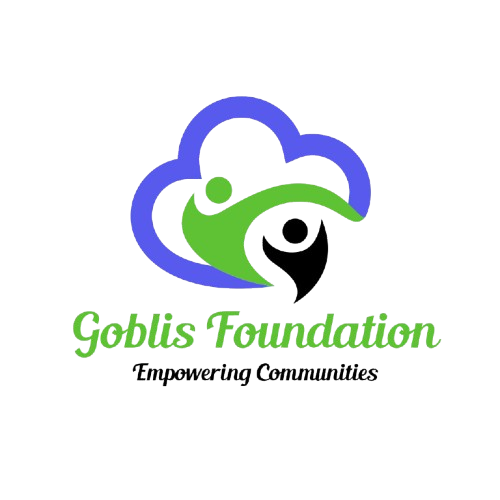Jikimu Program
Kenya’s youth-heavy population is already placing strains on the labour market, which is struggling to accommodate the fast-growing numbers of youth. Society, moreover, is not yet allowing youth the voice and influence in decision-making that they desire. In the coming decades, the number of youth is projected to increase sharply, meaning that finding outlets for youth to express their potential will become an ever more pressing challenge. As the working-age cohort grows, the dependency ratio – that is, the ratio of those aged 0–14 years and aged 65 and over to people of working age – is projected to decline from 79 dependents per 100 people of working age today to 61 by 2050. Kenya therefore faces the opportunity and challenge presented by a youth bulge. If Kenya can provide jobs to its youth population and allow youth to play their full part in social and political life, it too will have the opportunity to experience a demographic dividend. However, with nine million youth in the next decade projected to enter a labour market which currently employs only 2.3 million in the formal sector, such a dividend is far from guaranteed. If the youth population continues to experience the high levels of unemployment and underemployment it faces currently, there is a risk of creating a ‘lost generation,’ which languishes in a stagnating economy and continues to depend on the older generation for financial support (AFIDEP).
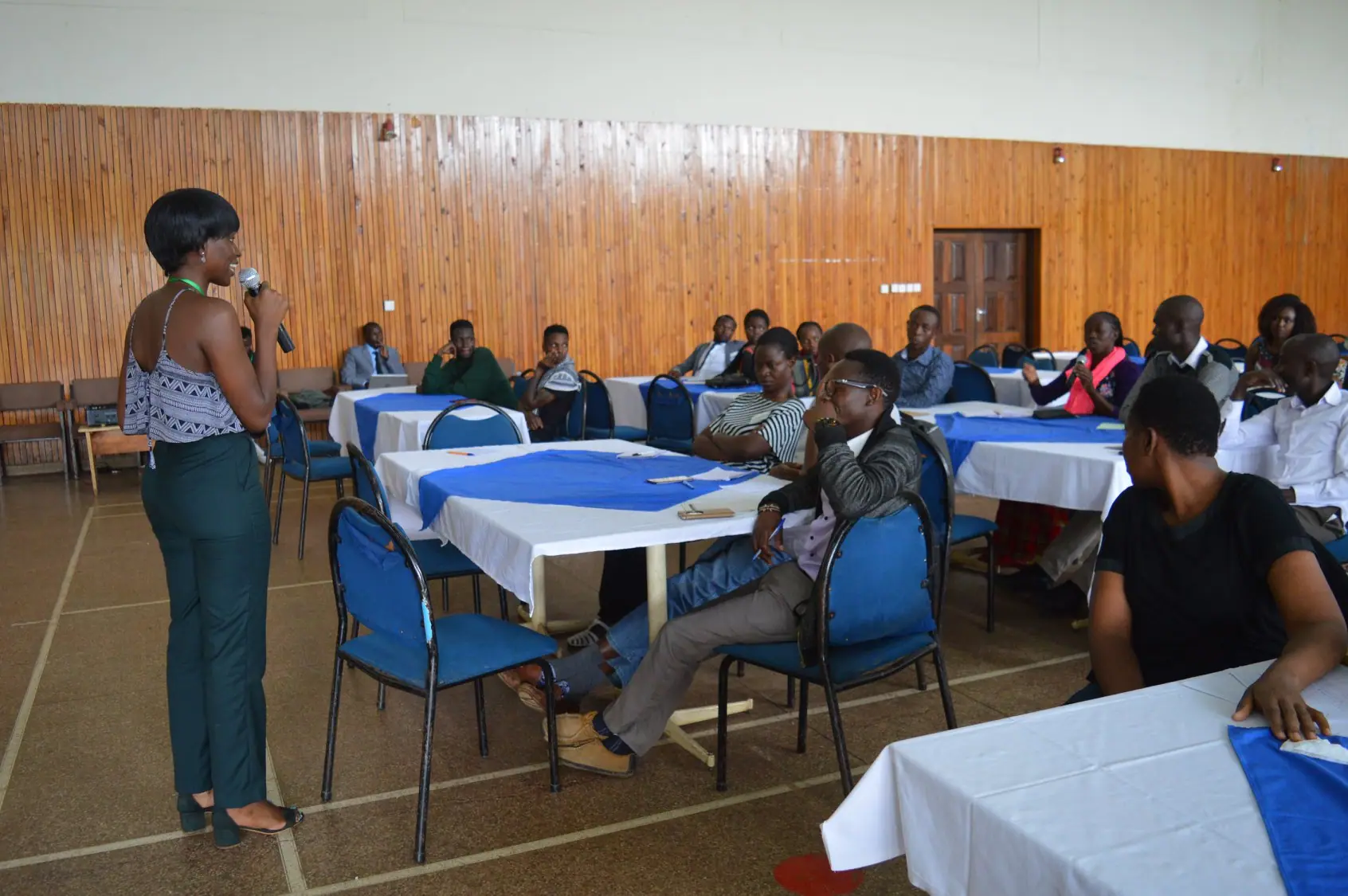
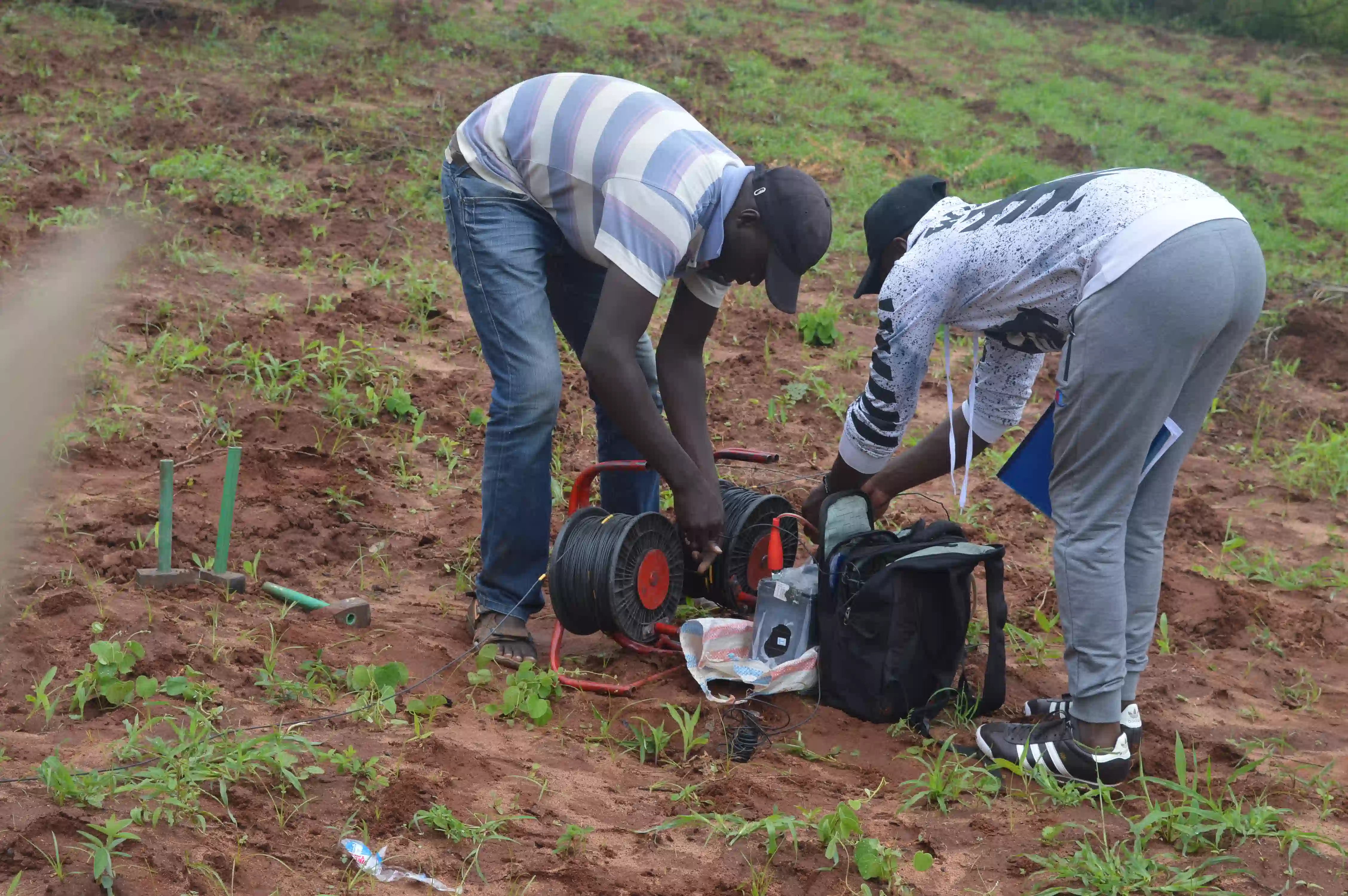
More so, livelihoods and economic activities are highly vulnerable to climatic fluctuations in space and time given that most of the population in Kenya lives in rural areas and relies on rain-fed agriculture which is susceptible to climate change and extreme weather events. Land and environmental degradation is one of the most serious challenges affecting Kenya, causing an estimated annual economic loss of $390 million (Sh38.9 billion) or three per cent of the GDP. Degradation of water catchment areas due to human settlement, pollution, poor waste management and deforestation, agricultural activities, and encroachments has had huge impacts on environmental conservation efforts. With the ensuing youth unemployment and extreme effects of climate change, the youth cannot be assured of quality life in the future. Youth unemployment has been described as a ticking bomb, with frustrated young men and women susceptible to drugs, prostitution, or even being lured into terrorism. In 2013, amid increasing concern about youth unemployment and associated risks of political instability, the government of Kenya pledged to enhance employment opportunities for youth as part of its ‘Vision 2030’. The government committed to create one million new jobs, to encourage entrepreneurship through providing loans, and to earmark 30 per cent of public procurement for youth-led businesses. Until now, the policy has not contributed much to check unemployment and has been marred with cases of corruption and favoritism, thus, not fulfilling the intended purpose.
At Goblis Foundation, we believe that social enterprises will be crucial to the recovery post covid-19 and a more concerted effort is needed to prepare local communities to deal with the employment challenges that have been made dire by the pandemic. In this regard, a more concerted effort is needed to prepare local communities to deal with the unemployment challenges. We are, therefore, committed to an extended social entrepreneurship approach which will solve existing social challenges, and as well, stimulate community-based activities to address the unemployment problem. Jikimu Social Entrepreneurship Program is set to make a long-term change in the youth to enable them to break out of the cycle of poverty through social entrepreneurship, solve local challenges and create the next generation of leaders.
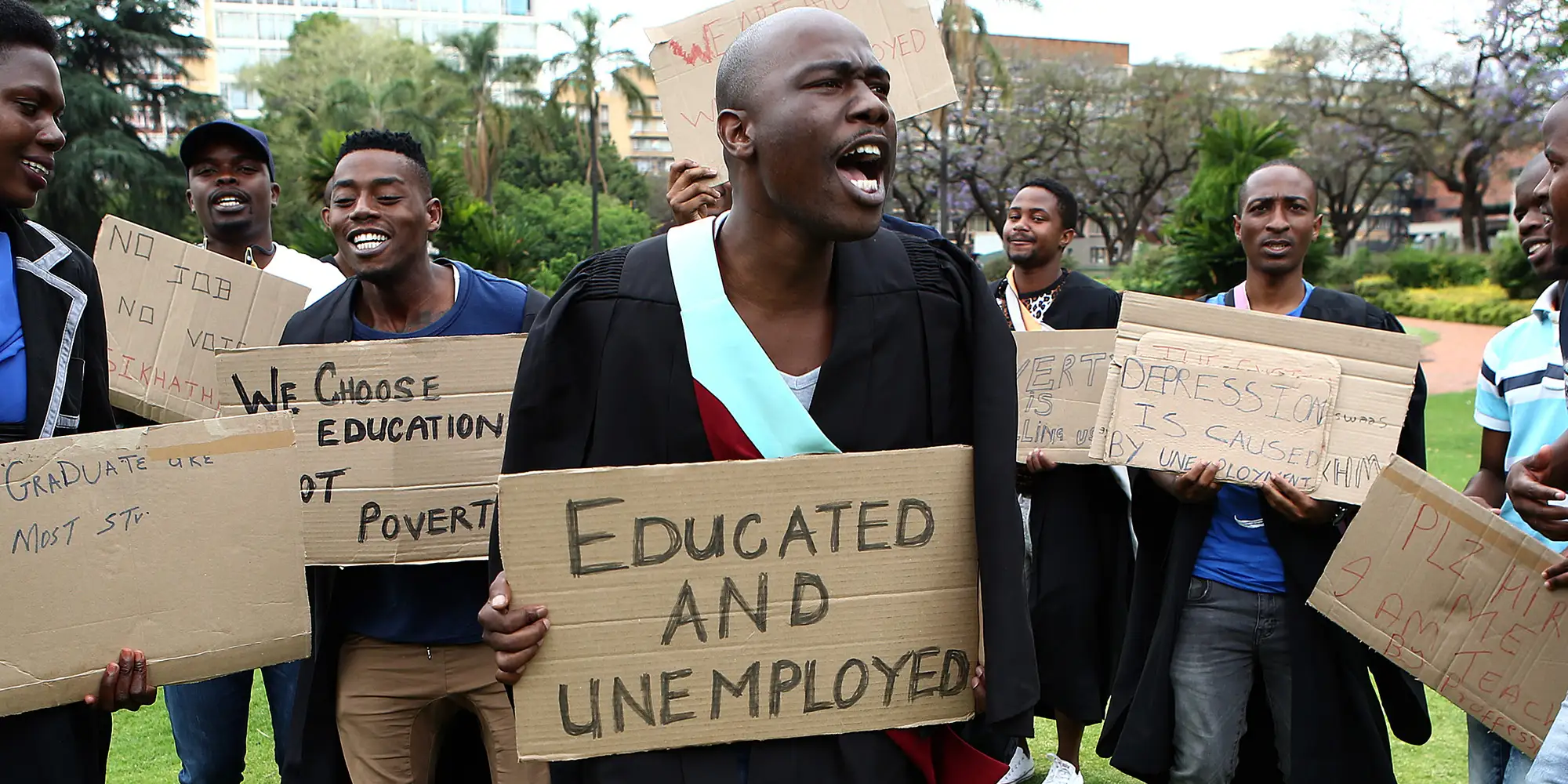
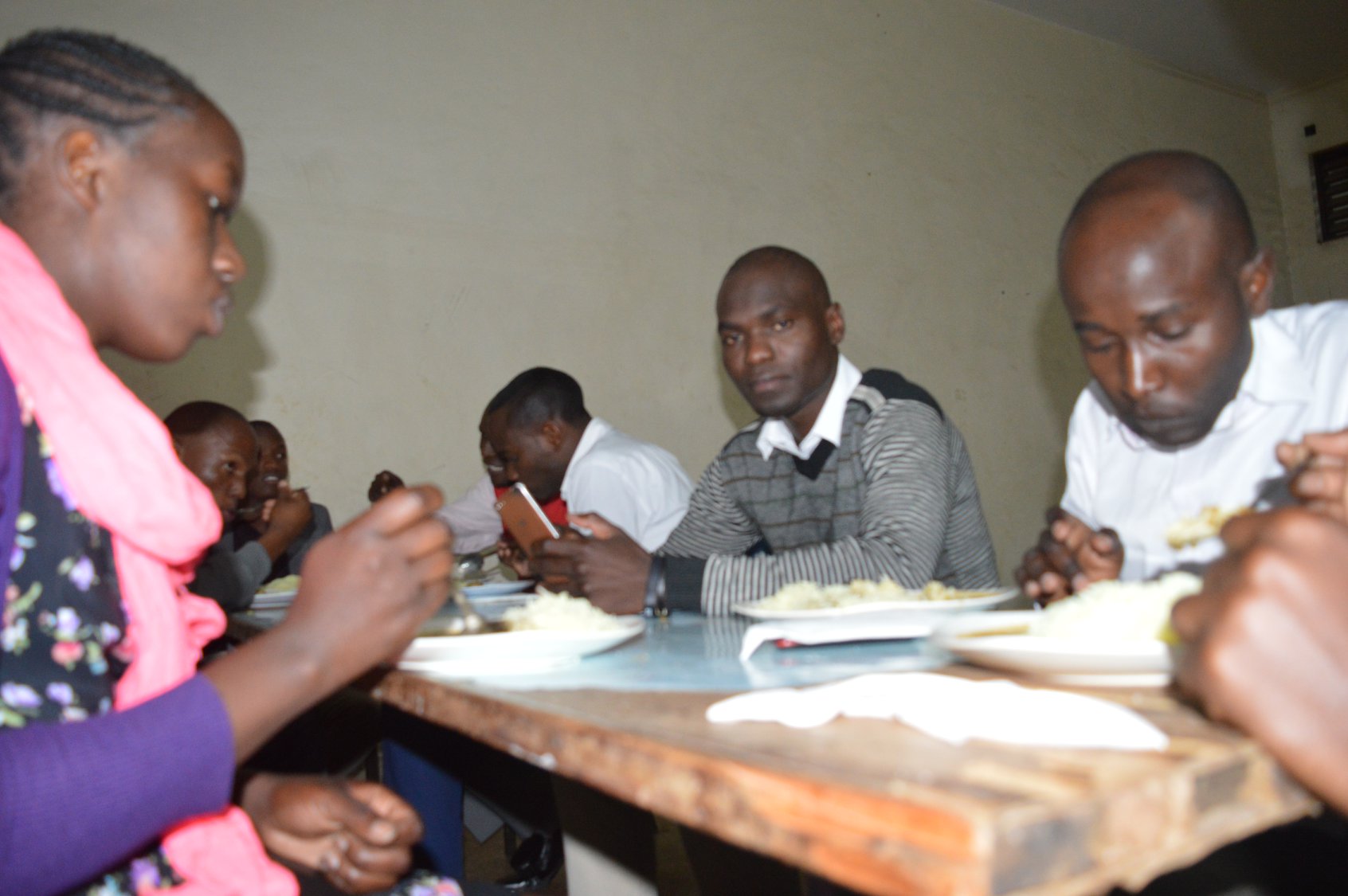
Through our Jikimu Social Entrepreneurship Program, we aim train 20,000 young people from the age of 18 through the age of 35 years old and empower 2,000 young community social enterprises every year for 10 years by creating a perfect balance between the social mission and entrepreneurship, to create employment opportunities to the underprivileged communities and protecting their environmental ecosystems. The program targets vulnerable and talented young men and women with community-changing ideas from underserved rural and peri-urban backgrounds. But these amazing youth lack the capacity, training, capital, mentorship, and market access, to bring a change in their communities through social entrepreneurship. We will start by identifying innovative ideas from talented social entrepreneurs in underserved communities with the motivation to solve social challenges whilst protecting the environment. We offer training to improve the talent, immediate opportunities are identified to solve social challenges, and the knowledge is amplified by the experts to improve and meet our objects where the social entrepreneurs are supported fully; morally, materially, and financially to realize a successful community social enterprise. Eventually, the solution is produced to solve a local challenge.
Eligibility Criteria for Social Entrepreneurs
- Social innovation idea must be youth-created and youth-led – 18 to 35 years old.
- The social innovation is led by vulnerable youth from underserved backgrounds.
- The social entrepreneur must have some level of college education.
- The Social Innovation must have the ability to create positive social impact, benefit a community, and reach long-term sustainability.
- Social Entrepreneurs must be the Founders of the social enterprise they are proposing.
- The proposed social enterprise must not have been incubated elsewhere and cannot have already received funding from another institution.
- Timely communication and trustworthiness.
This will be achieved through Goblis Foundation’s social enterprises creation model which proceeds in multi-stages criterion.
First Stage
First, in partnership with our partners in Kenya, we will arrange to attract talented and passionate young people between the ages of 18 and 35 years with a motivation to tackle local and societal social challenges to register to attend physical and online monthly training. We will have regular monthly training programs that will be posted on our Jikimu Website and this will enable us to identify young people with innovative ideas to attend physical training. After training, the trainees submit business plans where the relevant committee identifies good social entrepreneurship ideas to proceed to the next stage.
Second Stage
In the second stage, Social Entrepreneurs will attend a two-day physical training program followed up by multi-online training courses on social entrepreneurship. Social entrepreneurs are trained to acquire social entrepreneurship skills that will enable them to run a successful venture and improve their business plans to have a professional look and taste. Training is multidisciplinary, involving all modules a social enterprise may require to be successful. The beneficiaries will be invited to submit proposals to identify innovative social enterprises addressing a social issue important to them and their communities. The social entrepreneur’s lifelong and immediate interests will be identified and scrutinized on applicability to solve a complex social challenge.
Third Stage
In the third stage, twenty-eight best solutions with the best proposals and being led by social entrepreneurs with the most compelling personal leadership characteristics will be identified for the next step to be sponsored to join Ubunifu Institute. This will be conducted independently by a dedicated team through a multi-stage competition, combining web-based submissions, live rounds of presentations, and a due diligence process. The remaining social entrepreneurs are grouped together according to their localities to form training groups, where they will continue receiving training and guidance to develop small social enterprises that make the most of their skills and potential. The most promising social enterprises will be provided with access to microloans and small grants, thanks to group support, loans will almost always be paid back. All social enterprises at this stage will have the privilege to crowdfund on Goblis.Org, our peer-to-peer online crowdfunding platform where they will be able to fundraise from their friends, families, and our large network. Finally, we will help the social entrepreneurs scale up their social enterprises by connecting them to our partners, services of our extension officers, markets, and provision of subsidized products and services. The most performing social enterprises will be selected to attend boot camp at a later stage.
Fourth Stage
In the fourth stage, Goblis Foundation will provide social entrepreneurs with intensive support enabling them to take advantage of various opportunities and networks. The Ubunifu Institute Team will provide synergies and complementarities with the growing community of social entrepreneurs through the Ubunifu Institute Hub. We will appoint experts to offer extension services to give maximum support and attention to maximize the success rates of social enterprises. Social enterprises are also given support by our partners at this stage. To become an ecosystem, social innovation requires communities and networks to thrive and expand. We will run continuous networking programs, trainings and organizing events to nurture and promote social innovations such as town halls meetings and social media webinars.
Fifth Stage
In the fifth stage, our extension officers will implement monitoring and evaluation services and report from time to time. We will measure how social enterprises are performing to ensure that we continue to achieve our aim to build and develop social enterprises. By recording data about how often social entrepreneurs earn an income, their families eat, the number of children at school, improvements to their living conditions, and other relevant indicators, we can measure the impact our work is having on their communities.
Exit
Exit Strategy and Sustainability Goblis Foundation is motivated by an ethos of ‘help to self-help’ and focused in nurturing sustainable social enterprises and employment opportunities that outlast our programs. Our responsibility is to place entrepreneurs on the path to prosperity, with access to the financial and market services they need to sustain and expand their businesses. Our main objective is to contribute to the socio-economic empowerment of vulnerable young people and wellbeing of marginalized rural and urban communities through advocacy, capacity building, entrepreneurial training and the creation of opportunities aimed at empowerment for the attainment of good livelihoods through implementation of a variety of sustainable social entrepreneurship programs.
